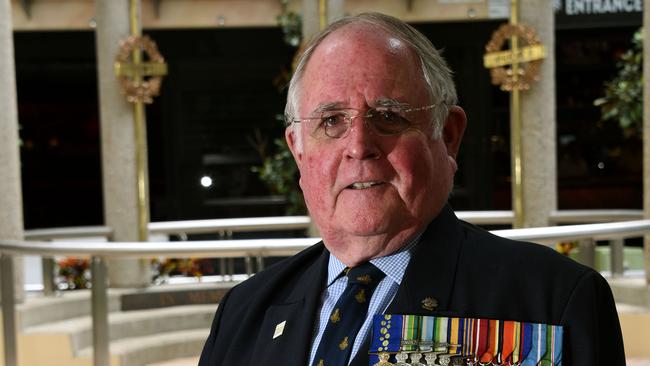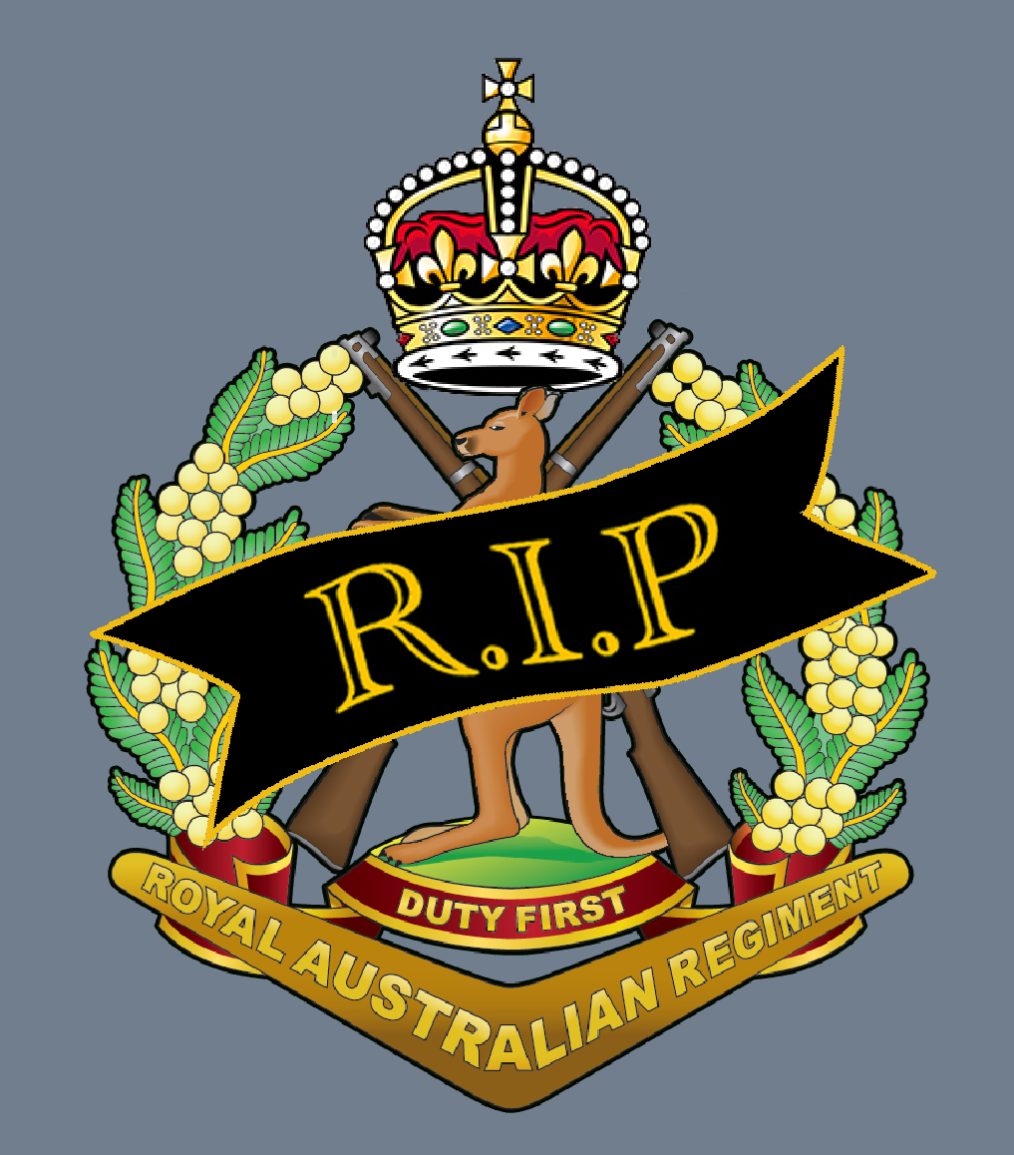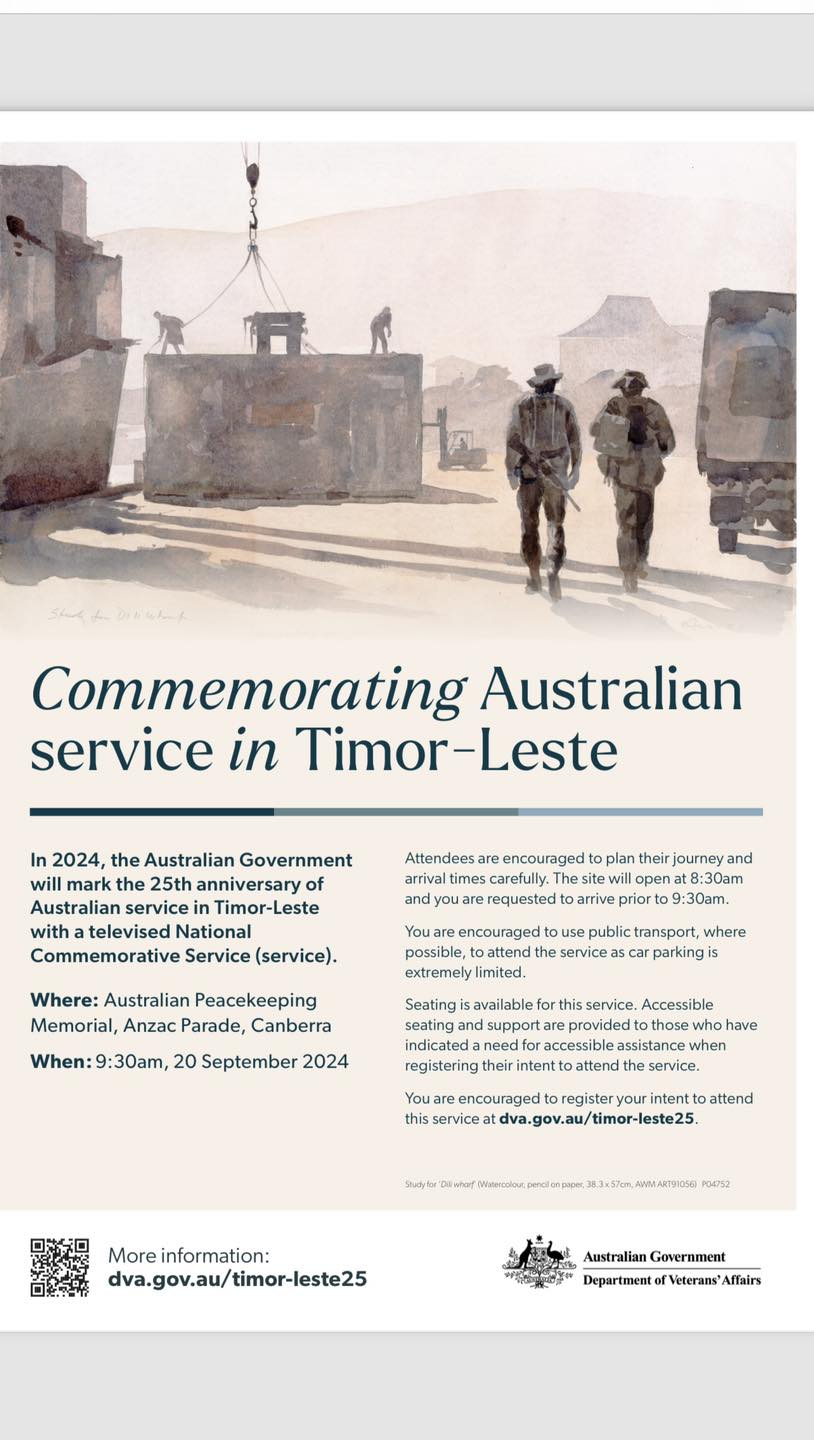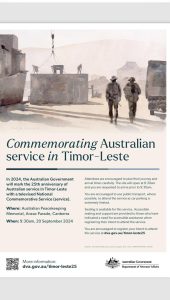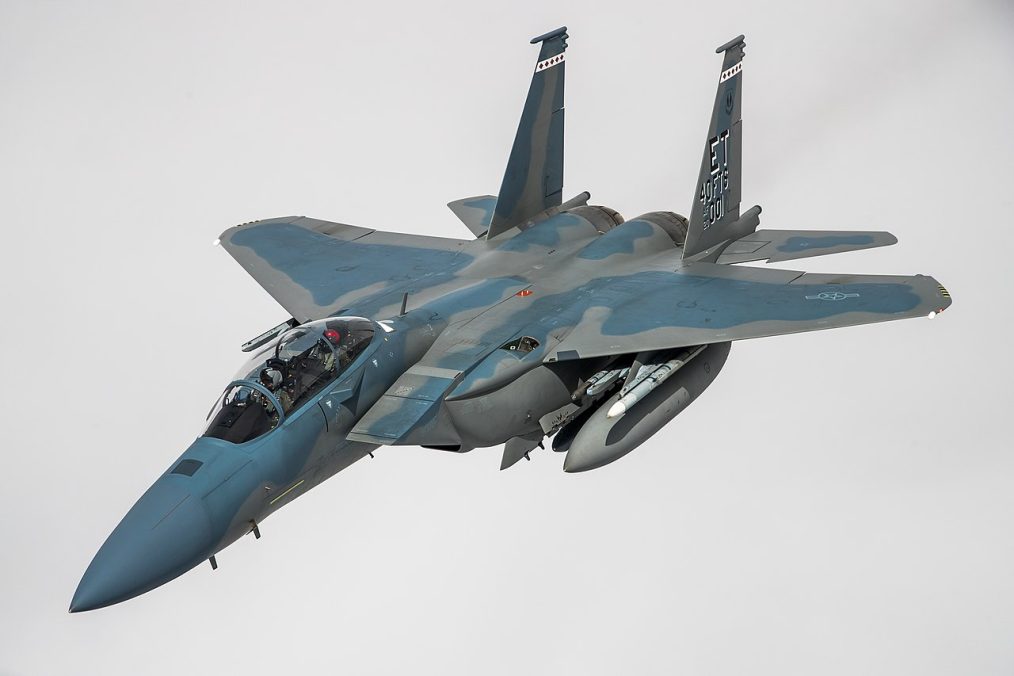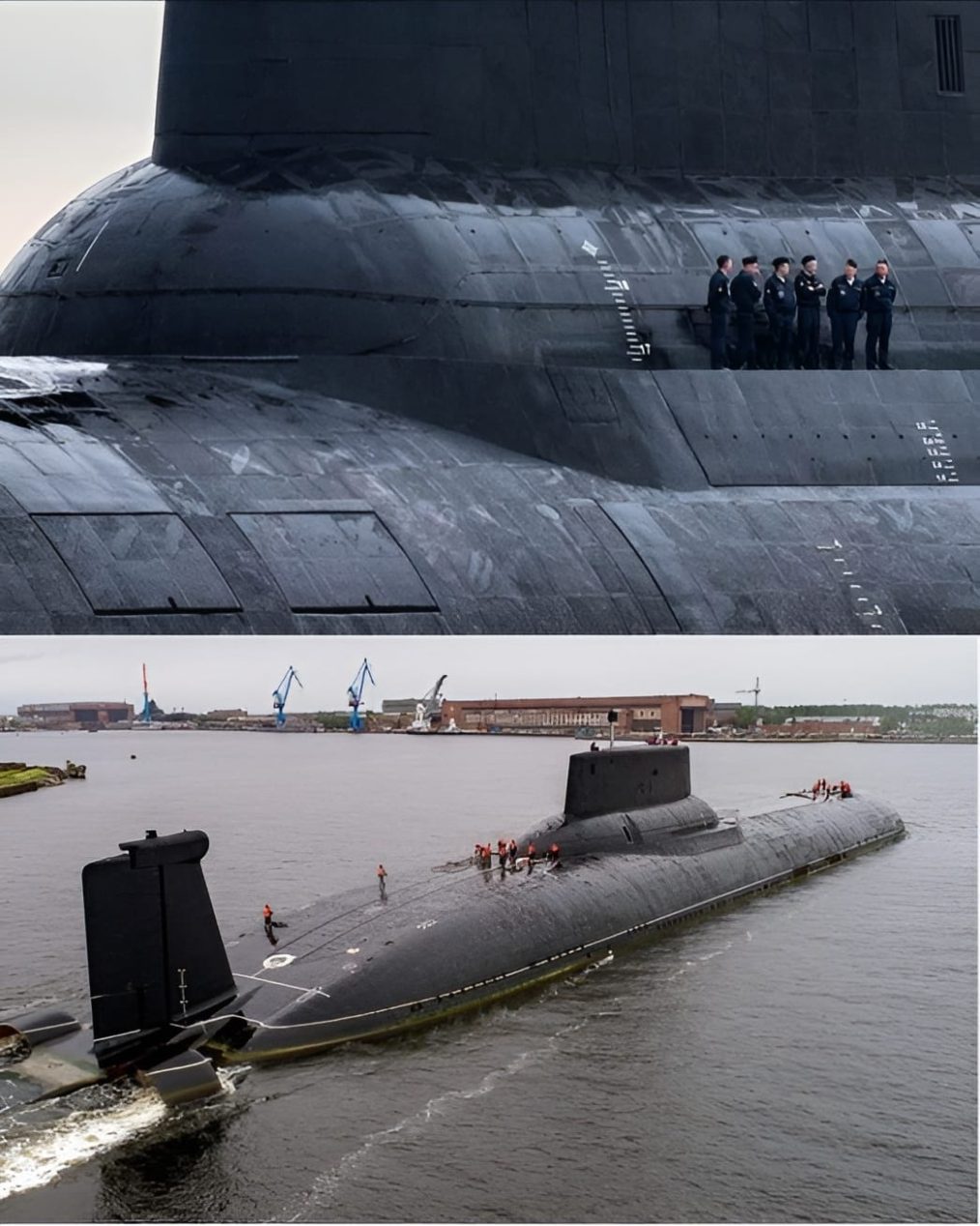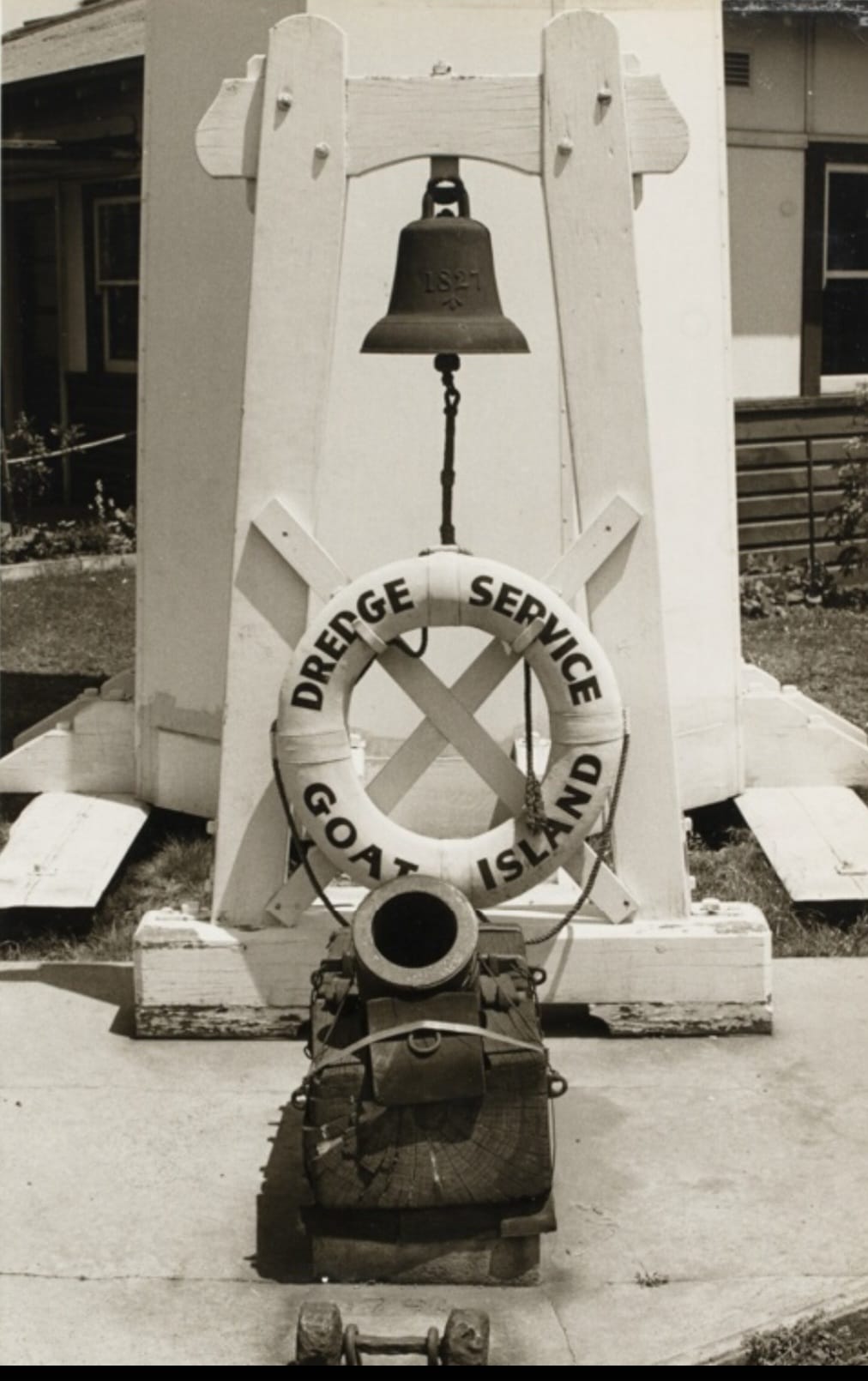Soldiers from 1st Battalion, The Royal Australian Regiment during a section attack on Exercise Septimus Stride 24 at Townsville Field Training Area.
LIKE venereal diseases, it’s difficult to argue nuclear power effect differs vastly between civilian and military applications.
Both have common, attendant myths.
Painful premature unnecessary deaths, genetic mutations, weeping sores which don’t get better, these foolish things remind us the only certainties are in the minds of ill-informed, though perhaps well intentioned activists.
Physicists Marie and Pierre Curie pioneered nuclear research, particularly medical applications, though without the safety precautions which have since been applied.
Marie died of radiation complications, Pierre was killed by a horse and cart.
The risks of fatal exposure to uncontained radioactive elements have been all but eliminated, save for tea drinking Russian dissidents.
CLICK LINK to continue reading
I have been advised that Billy Babbs has passed away. I have not been given any further information other than he served in 1 Platoon, A Company 8 RAR.
More information would be helpful
Ray
For your information, the Department of Veterans’ Affairs will host a National Commemorative Service to mark the 25th anniversary of Australia’s involvement in Timor-Leste. This significant event will take place on Friday, September 20, 2024, starting at 9:30 am at The Australian Peacekeeping Memorial on Anzac Parade in Campbell, Canberra.
The Talking Parrot: A man goes to a pet shop and buys a talking parrot. He takes the parrot home and tries to teach the parrot how to say a few things, but instead, the parrot just swears at him. After a few hours of this, the man finally gets fed up and throws the parrot into the freezer to teach it a lesson. He hears the parrot squawking and kicking for a few minutes, but then all goes quiet. The man opens the freezer up, the parrot calmly steps out onto the man’s outstretched arm and says, “I believe I may have offended you with my rude language and actions. I’ll endeavour to correct my behaviours.” The man is astounded. As he’s about to ask the parrot what’s caused this sudden change in attitude, the parrot continues, “May I ask what the turkey did?”
The Wise Farmer: A big-city lawyer went duck hunting in rural areas. He shot and dropped a bird, but it fell into a farmer’s field on the other side of a fence. As the lawyer climbed over the fence, an elderly farmer drove up on his tractor and asked what he was doing. The litigator responded, “I shot a duck and it fell into this field, and now I’m going to retrieve it.” The old farmer replied, “This is my property, and you’re not coming over here.” The indignant lawyer said, “I’m one of the best trial attorneys in the city, and if you don’t let me get that duck, I’ll sue you and take everything you own.” The old farmer smiled and said, “Apparently, you don’t know how we settle disputes in the countryside. We settle small disagreements with the ‘Three Kick Rule.'” The lawyer asked, “What is the ‘Three Kick Rule’?” The farmer replied, “Well, because the dispute occurs on my land, first I kick you three times and then you kick me three times and so on back and forth until someone gives up.” The attorney quickly thought about the proposed contest and decided that he could easily take the old codger. He agreed to abide by the local custom. The old farmer slowly climbed down from the tractor and walked up to the attorney. His first kick planted the toe of his heavy steel-toed work boot into the lawyer’s groin and dropped him to his knees. His second kick to the midriff sent the lawyer’s last meal gushing from his mouth. The lawyer was on all fours when the farmer’s third kick to his rear end sent him face-first into a fresh cow pie. The lawyer summoned every bit of his will and managed to get to his feet. Wiping his face with the arm of his jacket, he said, “Okay, you old coot. Now it’s my turn.” The old farmer smiled and said, “Nah, I give up. You can have the duck.”
The decision by the U.S. to purchase the F-15EX instead of more F-35 fighter jets is driven by several key factors. The F-15EX offers immediate operational readiness, cost-effectiveness, and significant enhancements in capability, making it an optimal choice for updating the tactical fighter fleet. Here’s a closer look at why the F-15EX is seen as a superior option at this time.
Here's Why the U.S. Is Buying the F-15EX Instead of More F-35 Fighter Jets (youtube.com)
Immediate Operational Readiness
One of the primary advantages of the F-15EX is its readiness to engage in combat operations straight off the production line. Unlike the F-35, which requires a more extensive integration and training period, the F-15EX can be deployed immediately. This rapid deployment capability is crucial for maintaining operational readiness and addressing current and near-term threats without delay.
Cost-Effectiveness
In terms of affordability, the F-15EX stands out as a more economical option compared to the F-35. The procurement and operational costs of the F-15EX are significantly lower, making it a financially prudent choice for expanding the fighter fleet. This cost-effectiveness does not come at the expense of performance; rather, it allows for a larger number of units to be acquired and maintained within budget constraints.
Enhanced Capability and Performance
The F-15EX brings substantial enhancements in capability that make it a formidable addition to the U.S. Air Force’s tactical fleet. It boasts a weapons payload that is four times greater than that of other fighters, allowing it to carry a more extensive array of armaments. Additionally, the F-15EX offers twice the fuel capacity, range, and speed, providing superior endurance and operational flexibility.
Reliable and Proven Platform
The F-15EX is built on a proven and reliable platform with a track record of performance and dependability. Its design incorporates advanced avionics, sensors, and weapons systems that enhance situational awareness and combat effectiveness. This reliability reduces maintenance demands and ensures a higher mission readiness rate compared to newer, less mature platforms.
Global Appeal and Compatibility
The F-15EX is also designed to meet the needs of global Air Forces, making it an attractive option for international partners. Its compatibility with existing infrastructure and support systems enables seamless integration into current operations, reducing the time and cost associated with fielding a new aircraft type.
Strategic Considerations
Strategically, the F-15EX complements the F-35 by filling different roles within the tactical air fleet. While the F-35 excels in stealth and advanced sensor capabilities, the F-15EX provides superior payload capacity and range. This combination enhances the overall versatility and strength of the air fleet, ensuring a balanced approach to various mission requirements.
In conclusion, the U.S. decision to invest in the F-15EX is driven by its immediate readiness, cost-effectiveness, enhanced capabilities, reliability, and strategic value. These factors collectively make the F-15EX a modern and practical solution for refreshing and augmenting the tactical fighter fleet in a timely and efficient manner.
During WW1 and WW2 America’s celebrities such as sports figures, actors and musicians joined the war effort supporting the troops overseas and most even enlisted in the military to serve in whatever capacity they could. During the Korean War, a few celebrities still served especially athletes although there was not the enthusiasm for the support as in prior conflicts. But Vietnam was completely different. Many celebrities actually condemned the military fighting the war as well as the government and presidents in office. But one actress took it to another level and she should have been tried for treason according to some. Who is Jane Fonda? Written and Hosted by Colin D. Heaton. Forgotten History is a 10th Legion Pictures Production.
Submarines are marvels of engineering that operate under the surface of the sea, often for extended periods. One of the critical aspects of their design is the ability to maintain a breathable atmosphere for the crew. Compressed air is not only vital for breathing but also for the operation of various systems aboard the submarine.
The process of obtaining and storing compressed air in a submarine is quite fascinating. Submarines have several methods to ensure a constant supply of fresh air. Primarily, they use an oxygen generator, which forms oxygen through the electrolysis of water. This is a process where electrical current is used to split water molecules into oxygen and hydrogen. The oxygen is then released into the submarine’s atmosphere, while the hydrogen is safely vented outside.
In addition to the oxygen generator, submarines are equipped with pressurized tanks that store large volumes of compressed air. These tanks are filled when the submarine is at the surface and can be used to quickly increase the oxygen levels inside the submarine if needed. Moreover, oxygen canisters, which release oxygen through a chemical reaction, are also present as a backup system. These canisters can be activated to provide an immediate supply of oxygen in case of an emergency.
The air inside a submarine is carefully monitored and controlled. Carbon dioxide scrubbers remove CO2 from the air, ensuring that the atmosphere remains safe and breathable. Humidity and other impurities are also regulated to maintain a comfortable environment for the crew.
It’s important to note that while submarines can produce their own oxygen, they still need to surface periodically to replenish their air supplies and ensure all systems are functioning correctly. Modern nuclear submarines, however, can stay submerged for months at a time, thanks to their advanced air regeneration systems.
So the ability to generate compressed air is a testament to the ingenuity of submarine design, allowing these vessels to operate independently beneath the waves, providing a self-sustaining environment for those on board.
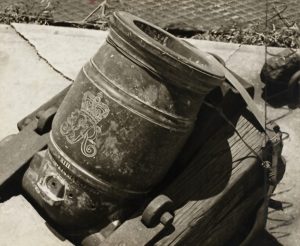 Goat Island is a small island located in Sydney Harbour, Australia. It has a rich history dating back to the early colonial period. In 1794, during the early years of European settlement, military fortifications were established on Goat Island to protect Sydney from potential threats. One of the key elements of these fortifications was the installation of cannons and mortars.
Goat Island is a small island located in Sydney Harbour, Australia. It has a rich history dating back to the early colonial period. In 1794, during the early years of European settlement, military fortifications were established on Goat Island to protect Sydney from potential threats. One of the key elements of these fortifications was the installation of cannons and mortars.
The cannons and mortars placed on Goat Island were part of a broader defensive strategy to safeguard the growing colony of New South Wales. The island’s strategic location provided an excellent vantage point to monitor and defend the approaches to Sydney Harbour. The armaments included a variety of artillery pieces, ranging from small cannons to larger mortars, which were capable of firing explosive shells over long distances.
These early fortifications played a crucial role in the defence of Sydney Harbour, particularly during times of international tension and conflict. Over the years, Goat Island continued to serve various military purposes, including as a gunpowder storage facility and a base for the Water Police.
Today, Goat Island is a heritage site managed by the New South Wales National Parks and Wildlife Service. The remnants of the island’s military history, including the 1794 cannon and mortar installations, are preserved as part of the island’s cultural heritage, providing visitors with a glimpse into Sydney’s early colonial and military history.
ED: For those living in Brisbane and surrounds I have attended this event previously and I highly recommend it as a great day. Ray


